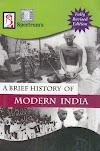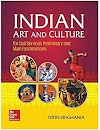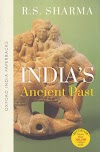Elections and Election Commission of India
"Democracy is based on the conviction that there are extraordinary possibilities in ordinary people"
Constitutional provision with respect to Elections
- Article 324 to 329 of Part XV deals with Elections
Article 324 - Article 324 provides for a single autonomous Election Commission of India for conducting elections to both the houses of the parliament, state legislature, president, vice-president, etc.
Article 325 - Constitution provides for the preparation of a single electoral roll for each constituency called General electoral rolls for the election to the houses of the parliament and state legislature.
Article 326 - Article 326 provides for universal adult suffrage but does not specifically mention the Right to Vote.
Article 326 provides principle on which voting takes place.
Right to Vote is not a constitutional right, it is a legal right. Representation of People Act 1951 passed by the Parliament provides for the Right to Vote. It sets qualification for voters to cast vote as well as to contest election. It also sets disqualification criteria for the same (for example - People behind the bar can't vote, People of unsound mind can't vote, etc.).
If Right to Vote is a constitutional right then it is not curtailed by Representation of People Act 1951 (RPA 1951).
Note - Right to Vote and Right to Contest Election is an ordinary legal right (provided by an act of the parliament).
In Kuldip Nayar Case, Supreme Court held that Right to Vote is an ordinary legal right.
Article 326 extends universal adult suffrage to all the citizen of India who are otherwise not disqualified under the Constitution or the act of legislature on the ground of non-residence, unsound mind, criminal or corrupt practices, etc.
Universal means the right (to register in electoral roll) is extended without discrimination based on religion, race, caste, sex, educational qualifications, property, etc.
Article 327 - Constitution confers power on the parliament to regulate/control through law, elections to both the houses of the parliament and state legislature including the law regarding preparation of voter list, delimitation of constituencies and all other relevant matters.
Article 328 - Under Article 328, the state legislature also confers with the power to regulate the elections to the respective state legislatures in the area where provisions have not been made by the parliament so far.
No state has ever used this power since now.
Article 329 - Constitution prohibits the interference of the courts in electoral matters.
However, court can solve electoral disputes.
Note - 61st Constitutional Amendment Act 1989 reduced the voting age from 21 years to 18 years.
In short, -
- Article 324 - ECI
- Article 325 - General electoral roll
- Article 326 - Universal adult suffrage
- Article 327 - Power of the parliament to regulate through law the elections
- Article 328 - Legislature can confer power to regulate elections where provisions have not been made so far.
- Article 329 - Court not to interfere in the election
Composition of Election Commission of India (ECI)
- Composition provided under Article 324
- 1 Chief Election Commissioner &
- Any number of Election Commissioners
- 1st Chief Election Commissioner - Sukumar Sen
- 1st Women Chief Election Commissioner - V.S. Ramadevi
Under Article 324, the composition of Election Commission of India is such that it shall consist of 1 chief election commissioner and such number of election commissioner as president may deem it necessary.
1989 → Voting age reduced to 18 years (from 21 years) → work load increases for ECI → so, for the first time 2 Election Commissioners were appointed along with the Chief Election Commissioner.
Chief Election Commissioner and other Election Commissioners are appointed by the President of India. If other Election Commissioners are appointed, then Chief Election Commissioner acts as the chairman of the commission.
Removal of the Chief Election Commissioner
Chief Election Commissioner is removed in a manner of judge of the Supreme Court (not in the manner of Chief Justice of India) and his service condition can't be changed to his disadvantage after his appointment.
Other Election Commissioners are removed by the President on the recommendation of the Chief Election Commissioner.
Tenure of the Chief Election Commissioner
Chief Election Commissioner is appointed for a term of 6 years or till he attains the age of 65 years whichever is earlier.
He is not eligible for re-appointment to the office.
After retirement, he can't control any office of profit under state.
He enjoys the status of a Supreme Court Judge (not like CJI).
Election Commissioners -
- Election Commissioners are appointed by the President and are removed on the recommendation of the Chief Election Commissioner by the President.
- He holds the office for 6 years in office or till he attains the age of 65 years of age.
- He can be appointed as Chief Election Commission but can't be re-appointed as Election Commission.
- He enjoys the status of a Supreme Court judge and has powers equal to Chief Election Commissioner (CEC).
Note - Decisions in ECI are taken on the basis of majority.
Qualifications - Constitution has not given any specific or elaborate qualification for election commissioner. The only qualification is that he must be well acquainted in the administration of the country.
Functions of ECI
- Preparation of Electoral rolls
- Registration of political party
- Recognition of political party
- Reservation and allotment of symbols to the political party and independent candidate.
- ECI advises the president and the governor on the question of disqualification of member of the parliament and state legislature.
- ECI expresses its opinion on the cases of person found guilty of electoral malpractices which come up before Supreme Court or High Court.
- ECI also advices the president for the disqualification of Member of the parliament.
Powers of ECI
Powers of the ECI are elaborately mention under Article 324. ECI issues executive orders as per the provisions of election symbol (reservation & allotment) order 1968.
ECI has formulated the rules for holding the election in the form of conduct of election rules 1961.
- Kanhiya Lal Omar vs R.K. Trivedi Case 1985
Supreme Court clarified in this case that powers of ECI under Article 324 (1) is plenary in nature, i.e., uncontrolled by the executive.
Court further clarified that Article 324(1) which defines the role of ECI provides for reservoir of power to ECI in order to ensure free and fair elections. Reservoir of power means whenever appropriate law is not available for conducting elections then Election Commission can formulate the rules to deal with the situation (For Example - Modal code of conduct.
However power of Election Commission are subjected to two conditions -
- These powers are meant to supplement but not to sub-plant (i.e., go against) the electoral laws made by the parliament or state legislature as well as ECI itself must act bonafide and observe Rule of Law.
- Decisions of the Election Commission are subjected to review by the court.
Supreme Court in Re-Power of ECI Case 2003 clarified that ECI is a sole authority to decide on election schedule. President and Governor as the case may shall issue the notification for the election on the advice of the ECI.
Regional Election Commissioner -
- It is used only 1 time in 1951.
- Under Article 324, President on the recommendation of ECI can appoint regional election commissioner on the eve of general election to both Lok Sabha and State legislature elections.
- Though he assists the election commission in holding free and fair election, he is not a member of ECI.
Returning Officer (DM/SDM)
- Returning officer is the head of the election in a constituency.
- In the Lok Sabha election, he is District Magistrate or District Collector and in the Assembly election, he is the SDM who acts as ex-officio returning officer.
- Returning officer is functioning under the overall superintendence, direction and control of Election Commission.
- He is responsible for holding free and fair election in his constituency.
- Returning officer receives, scrutinises, accepts or rejects the nomination paper. He must allows the candidate to defend himself.
- Thus, the nature of functioning of Returning officer is Quasi-Judicial.
Presiding officer during election
- Presiding officer is a civil servant (any government officer not belonging to Group D category) drafter for election duty, who is the head of polling booth and responsible for free and fair election in is polling booth.
- He functions under the overall control of Returning officer.
Election observer
- He is a civil servant nominated by the Election Commission to observe the conduct of election in a constituency to be free and fair, having the power to direct the Returning officer to stop the conduct of election or stop the declaration of election result for the constituency, if he finds any anomaly (malpractice) in election being free and and fair.
Proxy voting
- Under Representation of People Act 1951, a voter who is eligible to cast his vote through post is also allowed to authorise a family member to cast his vote in the constituency where he is registered as a voter.
- The following person are allowed to use proxy voting -
- Indian diplomats posted abroad
- Defence personnel posted in forward area
- Civil servants who are themselves in election duty
Modal Code of Conduct
- Modal - ideal, Code - rule & Conduct - behaviour
- i.e., it is an ideal rule to be followed in an election.
- It is morally binding not legally, since there is no law to implement it.
Modal Code of Conduct (MCC) is formulated by Election Commission of India in 1962 for the 1st time in consultation with all the major political parties.
MCC does not enjoy legal sanction but it enjoys the approval of the Supreme Court.
MCC comes into force as soon as election are announced by the election commission which is normally 3 weeks in advance of election notification issued by the president or the governor.
MCC is binding on all the political parties, individuals, organisations and officers associated with the election.
The main purpose of MCC is to provide a level playing field in election.
Under MCC government is prohibited from announcing any new welfaric scheme once MCC comes into force.
Government can't transfer, appoint or remove officers related to the election without the approval of ECI.
Ministers and the ruling party legislature can't link official work with the election work.
Ministers can't use official vehicle except PM and CM.
Communal and hatred speech are not allowed.
Threatening the voters or giving some kind of temptation will also be seen as a violation of MCC.
MCC comes into force from the date of announcement of election till the day result has been declared.
ECI implements MCC and can even ask for disqualification of a candidate from contesting election for the violation of MCC besides giving them warning or preventing them from campaigning.
Though MCC enjoys only moral authority yet it is obeyed by all for the fear of adverse publicity that may come with disobedience towards MCC.
ECI has asked the government to provide legal status to MCC but it has not been done till now.
Right to Recall (not given in the Constitution of India)
- It is not given in the CoI but through legislation it can be given at the local government level.
- For example - MP, Chhattisgarh, Bihar, Jharkhand, Rajasthan, Haryana, etc.
Taken from Switzerland under which voters in the constituency enjoys the right to recall their elected representative on the ground of non-performance before the expiry of his term. However, he can be recalled only after the completion of 50% of his term.
Procedure to recall - If at least 25% of the registered voters in a constituency give in writing to Election Commission expressing their desire to recall the elected representative on the ground of non-performance, then voting is conducted for recall and if more than 50% of the voters vote to recall, then the representative shall lost his membership of the office and a by-election is conducted to replace him.
Advantage of Right to Recall -
- It is a good tool of accountability and thus
- It strengthens democracy.
Disadvantage of Right to Recall -
- It can de-established the governance system if misused.
- It can also keep the representative under undue pressure to take populist measure rather than the right decision in the larger interest of the people.
- It can also increase expenditure as conducting by-election would further require financial as well as human resources and time.
It is used at the local government level in MP, Chhattisgarh, Bihar, Jharkhand, Rajasthan, Haryana, etc.
Previous Article - Types of Elecitons
Next Article -
Notes on other subjects
Optional Subject
Note - This is my Vision IAS Notes (Vision IAS Class Notes) and Ashutosh Pandey Sir's Public Administration Class notes. I've also added some of the information on my own.
Hope! It will help you to achieve your dream of getting selected in Civil Services Examination 👍





0 Comments